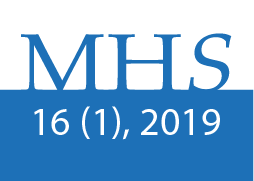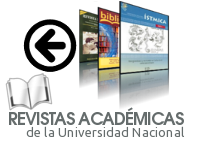LEARNING DELIVERY AND COMMITMENT, PERCEIVED MOTOR COMPETENCE, AND ANXIETY WHEN MAKING MISTAKES OR UNDER STRESS: MOTIVATING FACTORS IN ADOLESCENTS FOR ACHIEVEMENT DURING PHYSICAL EDUCATION CLASSES
DOI:
https://doi.org/10.15359/mhs.16-1.3Keywords:
motivation, physical education, adolescenceAbstract
Objective: to determine the factors associated to motivation in students for achievement of III cycle (seventh, eighth, and ninth grades) of the General Basic Education during Physical Education classes. Methodology: The AMPET questionnaire (Achievement Motivation in Physical Education Test) was applied to a total of 396 students (178 women and 218 men) of high school from five public educational centers, located in the Central Canton of the Province of Heredia, Costa Rica. A descriptive analysis was made with averages and standard deviations, 2x3 factorial ANOVA for independent groups. Results: Differences (p = .000) were observed in the commitment factor and learning delivery according to the academic level. When doing a post-hoc Tukey, it was found that the lower the academic level, the greater the commitment and learning delivery; that is to say, the seventh grade students reflect a higher score in the factor of commitment and learning delivery (4.03 ± .06) in comparison with eighth level (3.60 ± .05) and ninth level students (3.62 ± .06). With respect to the perceived motor competence factor, differences were obtained (p = .000) according to sex. The above reflects that men have a greater perceived motor competence (3.03 ± .06), compared to women (2.62 ± .07). Regarding the anxiety factor when making mistakes or under stress situations, statistically significant differences were found (p = .000); according to sex, women obtained a higher score in anxiety when making mistakes or under stress situations 2.51 ± .06), compared to men (2.16 ± .05). Conclusion: The research revealed that women respond differently than men to the factors associated with achievement motivation and it should be noted that physical education is a source of stress for them, an important fact to analyze to know its cause, and whether it is due to the existence of a gap in motor competence that has consequences on behavior, as well as to compare whether this behavior is repeated in schools in different regions of the country.
References
Becerra-González, C., & Reidl, L. (2015). Motivación, autoeficacia, estilo atribucional y rendimiento escolar de estudiantes de bachillerato. Revista Electrónica de Investigación Educativa, 17(173), 79-93. Recuperada de http://redie.uabc.mx/vol17no3/contenido-becerra-reidl.html
Carrasco, M., Parra, D., & Pérez, C. (2015). La competencia motriz y su percepción en el alumnado de cuarto curso de Educación Secundaria y Bachillerato. Calidad de Vida y Salud, 8(2), 70-87. Recuperada de http://revistacdvs.uflo.edu.ar/index.php/CdVUFLO/article/view/119/128
Coterón, J., Álvarez, E., Pérez-Tejero, J., & Sampedro, J. (2013). Clima motivacional, competencia percibida, compromiso y ansiedad en Educación Física. Diferencias en función de la obligatoriedad de la enseñanza. Revista de Psicología del Deporte, 22(1), 151-157. Recuperada de http://www.redalyc.org/pdf/2351/235127552045.pdf
Durán-Aponte, E., & Elvira-Valdés, M. (2015). Patrones atribucionales y persistencia académica en estudiantes universitarios: validez de la Escala Atribucional de Motivación de Logro General (EAML-G). Revista Intercontinental de Psicología y Educación, 17(2), 201-221. Recuperada de http://www.redalyc.org/pdf/802/80247939011.pdf
García, J. M. (2016). La motivación de logro mejora el rendimiento académico. Revista Electrónica de Investigación y Docencia Creativa, 5, 1-8. Recuperada de http://digibug.ugr.es/bitstream/10481/39336/1/5-1.pdf
González, C., Cecchini, J. A., Llavona, A., & Amaro, V. (2010). Influencia del entorno social y el clima motivacional en el autoconcepto de las futbolistas asturianas. Aula Abierta, 38(1), 25-36. Recuperada de https://www.researchgate.net/publication/44163447_Influencia_del_entorno_social_y_clima_motivacional_en_el_autoconcep-to_de_las_futbolistas_asturianas
Hellín, P., Moreno, J. A., & Rodríguez, P. (2006). Relación de la competencia motriz percibida con la práctica físico-deportiva. Revista de Psicología del Deporte, 15(2), 219-231. Recuperada de http://www.rpd-online.com/article/view/232/232
Huayllaquispe, T. (2013). Desempeño docente del practicante de Educación Física y la motivación de logro para la clase en alumnos del nivel secundaria de las instituciones educativas de Lima, asignadas a las Prácticas Pre Profesionales UNMSM, año 2013. Universidad Nacional de Educación Enrique Guzmán y Valle. Recuperada de http://repositorio.une.edu.pe/bitstream/handle/UNE/968/TM CE-Cd H82 2015.pdf?sequence=1
Kaplan, A., Katz, I., & Flum, H. (2012). Motivation theory in educational practice: Knowledge claims, challenges, and future directions. In APA educational psychology handbook. Individual differences and cultural and contextual factors. (Vol. 2, pp. 165-194). Washington: American Psychological Association. https://doi.org/10.1037/13274-007
Lonsdale, C., Lester, A., Owen, K. B., White, R. L., Moyes, I., Peralta, L., … Lubans, D. R. (2015). An Internet-supported Physical Activity Intervention Delivered in Secondary Schools Located in Low Socio-economic Status Communities: Study Protocol for the Activity and Motivation in Physical Education (AMPED) Cluster Randomized Controlled Trial. BMC Public Health, 16(1), 17. https://doi.org/10.1186/s12889-015-2583-7
López, A., Camerino, O., & Castañer, M. (2015). Evaluar la motivación en la educación física , una aplicación con AMPET *. Didáctica de la Educación Física, 47, 55-63. Retrieved from http://www.observesport.com/desktop/images/docu/aj85rr9d.pdf
Naranjo, M. L. (2009). Motivación : Perspectivas teóricas y algunas consideraciones de su importancia en el ámbito educativo. Revista Educación, 33(2), 153-170. https://doi.org/http://dx.doi.org/10.15517/revedu.v33i2.510
Requena, C. M. (2014). Implicaciones de los estilos de enseñanza aprendizaje y de la educación emocional en la enseñanza de la danza. Universidad Nacional de Educación a Distancia. Recuperada de http://e-spacio.uned.es/fez/eserv/tesisuned:Educacion-Crrequena/Documento.pdf
Rubio-Castillo, A. D., & Gómez-Mármol, A. (2016, July 25). Efectos del Modelo Ludotécnico en el aprendizaje técnico, competencia y motivación en la enseñanza del baloncesto en Educación Física. Revista Euroamericana de Ciencias del Deporte, 5(2), 41-46. Recuperada de http://revistas.um.es/sportk/article/view/264631/196301
Ruiz-Pérez, L. M., Moreno-Murcia, J. A., Ramón-Otero, I., & Alias-García, A. (2015). Motivación de logro para aprender en Educación Física: adaptación de la versión española del Test AM PET [ 1 ]. Revista Española de Pedagogía, (260), 157-176. Recuperada de http://content.ebscohost.com/ContentServer.asp?T=P&P=AN&K=101375793&S=R&D=ehh&EbscoContent=dGJyMNLe80SeprU40dvuOLCmr0%2BeqLFSsqy4SbWWxWXS&ContentCustomer=dGJyMPGvsEuxqbFMuePfgeyx44Dt6fIA
Ruíz, L., Graupera, J. L., Contreras, O., & Nishida, T. (2004). Motivación de logro en educación física escolar: un estudio comparativo entre cinco países. Revista de Educación, 333, 345-361. Recuperada de http://www.cafyd.com/educacionfinal.pdf
Sánchez-Alcaraz, B., Gómez-Mármol, A., & Más, M. (2016). Estudio de la motivación de logro y orientación motivacional en estudiantes de educación física. Apunts. Educación Física y Deportes, (124), 35-40. https://doi.org/10.5672/apunts.2014-0983.es.(2016/2).124.04
Turabik, T., & Baskan, G. A. (2015). The importance of motivation theories in terms of education systems. Procedia-Social and Behavioral Sciences, 186, 1055-1063. https://doi.org/10.1016/j.sbspro.2015.04.006
Yamila, D., & Donolo, D. (2014). Factores clave en la promoción del compromiso en educación primaria. Un estudio sobre tasks, teachers and students. Congreso Iberoamericano de Ciencia, Tecnología, Innovación y Educación INTRODUCCIÓN, 1-17.
Published
How to Cite
Issue
Section
License
General conditions
MHSalud: Journal in Human Movement Sciences and Health by the Universidad Nacional is cover under a Creative Commons Atribución-NoComercial-SinDerivadas 3.0 Costa Rica license.
The journal is hosted in open access repositories such as the Institutional Repository of the Universidad Nacional, the Kimuk Repository of Costa Rica and La Referencia.
The editorial source of the journal must be recognized. Use the doi identifier for this purpose.
Self-archiving policy: The journal allows the self-archiving of the articles in their peer-reviewed version, edited and approved by the Editorial Board of the Journal to be available in Open Access through the Internet. More information in the following link: https://v2.sherpa.ac.uk/id/publication/25815



















